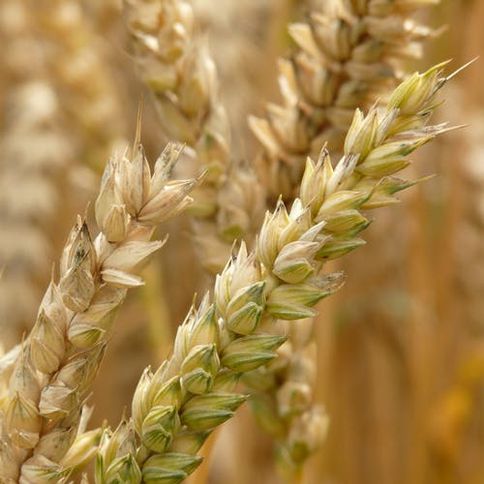Asthma – Thamaka Swasa
Asthma – Thamaka Swasa

Tips to boost immunity against Asthma – the most common winter problem
Ayurveda gives tips to boost immunity against asthma. Ayurveda doesn’t only focus on physical entities of life but is a wholesome source of knowledge dealing with the physical, mental, social, emotional, and spiritual construct of life. Therefore it is the most rational and scientific knowledge which aims at treating the disorders of distressed/diseased as well as promoting the health of a healthy individual.
With this regard, Ayurveda has certain basic concepts which when followed rightly protect and nourish body and mind. This includes the conduct and pursuits of life derived from the five elements of nature- the Panchamahabhuta. The routine and regimen are based upon the natural factors mentioned under the context of Dinacharya (the daily regimen) and Rtucharya (the seasonal regimen) in the treatise Ashtanga Sangraham / Ashtanga Hridayam written by Vagbhata Acharya. The manifestation of diseases depends upon the external environmental factors when it is not in sync with the internal components of the body. Therefore, following a seasonally conducive regime plays an important role in the context of health.
How Seasons Define the Functioning of Our Body?
The 3 consecutive seasons of SiShira, Vasanta, GrìSma (January till July) comprise “UttaraayaNa” – the period when Sun is traversing to the north of equator, though it is the equatorial inclination of the earth, let us just assume that the sun “travels” for simpler understanding as we can see the directional reference. This period is called “AdānaKāla i.e. period of extraction/taking away strength.
The seasons of VarSha, Sarad, Hēmanta (July to January) comprise Dakshinayana – sun traversing to the south of the equator. This period is called VisargaKāla i.e period of discharge, it gives back strength and vitality.
The basis for health is Hita Bhuk, Mita Bhuk, Ritu Bhuk- which is to eat mindfully which is conducive, only what is needed and what is “SEASONAL”.
In order to maintain health, following the nutrition & regime as per season is important. It is interesting that in Ayurveda diseases are treated considering all these factors attributing to the seasonal regime.
Every season has important characteristics and specific regime to be followed. One of the most common problems faced by many during colder months, is the difficulty in breathing which is explained in terms of Bronchial Asthma. This is commonly seen in colder months due to accumulation of Cold in the body in addition to the colder temperature and weather externally.
What is the root cause of Asthma – learn from Ayurveda?
The underlying cause of all asthmatic conditions is increased Kapha dosha in the stomach. From there it moves into the lungs, trachea and bronchi. The increased kapha blocks the natural flow of air, creating spasm in the bronchial tree and resulting in asthma and wheezing.
Environmental and lifestyle factors also play a role in asthma. Consuming cold or stale foods are not easy to digest and lead to the formation of ama (mucus) thereby causing blockage in the respiratory channel and difficulty in breathing. Living in a cold and damp environment is also a reason for asthma.
What happens during an Asthma Attack?
Ayurvedic practitioners also focus on diet, exercise, and deep breathing techniques to help reduce asthma symptoms.
Herbs like vasa, pushkarmula and yastimadhu have been known to control the symptoms of asthma. These herbs may have antihistamine, bronchodilating, and anti-asthmatic properties.
The general line of treatment includes treating the symptoms and ease the respiration followed by balancing the doshas (elemental imbalance of our individual body).
The following formulations are beneficial in treating Asthma but to be strictly followed under professional advice from an Ayurvedic Practitioner.
- Swasari Vati
- Tulasi
- Vasaavaleha
- Sitopaladi Churna
- Abraka Bhasma
- Yashtimadhu Churna
Few home remedies and combinations that help mild Asthmatic conditions.

“Mix one teaspoon of cinnamon and 1/4th teaspoon trikatu (trikatu is a combination of three (tri) spices or herbs that are hot (katu). It is a blend of equal parts of Pippali or long pepper, black pepper and dry ginger ) into a cup of boiling water. Let it steep for 10 minutes and add 1 teaspoon of honey before drinking,” suggests Dr. Vasant Lad in his book on Ayurvedic remedies.
Golden milk or Turmeric milk with a pinch of cardamom helps reduce tightness in chest.
Licorice has anti inflammatory properties. Licorice tea helps in reducing pain in the throat and inflammation.
Half teaspoon of bay leaf and 1/4th teaspoon of pippali/long pepper mixed with 1 teaspoon of honey soothes the respiratory tract and is useful in chronic Asthmatic conditions.
Pepper Ginger Honey combination is a very well-known home remedy for respiratory symptoms.
YashtiMadhu/ Licorice is said to help enormously in various symptoms of Asthma. Yashti Madhu consumed as Khada/ Tea helps relieve inflammation. It can also be administered with pepper and Rock sugar. Sometimes it causes vomiting but it is a progressive indication of expulsion of Phlegm. Thereby Yashti Madhu acts in various ways in treating Asthma.
These are the self-awareness in terms of lifestyle that one needs to follow in
case of Asthma both as preventive as well as line of treatment:

- Pulses like rice, wheat, barley, beans should be consumed regularly.
- Avoid exposure to indoor and outdoor pollution, cigarette smoke, and allergens.
- Add Honey to your drinks and teas (should be lukewarm not hot).
- Nuts and dry fruits can be taken in moderate amount.
- Eat foods rich in antioxidants.
- Heavy foods like milk, cheese, curd, buttermilk and banana should be avoided.
- Oily, greasy and fried foods should be avoided.
- Try to avoid the cold and refrigerated foods and drinks.
- Avoid excessive activities or physical exercises.
- Yoga and meditation can be helpful.
- Cover your mouth and nose when stepping out in cold weather.
- Avoid processed foods, additives, white sugar and artificial sweeteners.

We believe in collaborative relationship-based care where our Ayurvedic Doctors, Ayurvedic Practitioner, Ayurvedic Supplement Brands, Ayurvedic Nutritionists & Chefs, Yoga, and Meditation Trainers are in sync. Contact the team who passionately works together to hold your hand in this healing journey.
